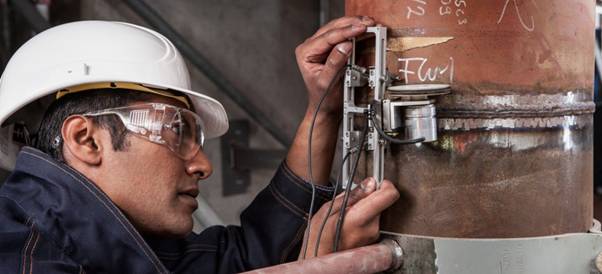NDT is a type of examination that allows inspectors to gain data about a substance without destroying it. Industries use non-destructive testing to evaluate the properties of a material, component, structure, or system for characteristic differences and discontinuities without causing damage to the original part. This test is proving to be a highly successful method of reducing the cost and time for organizations. So, if you want to excel in this field, they offer an NDT course to study these tests.
Companies can use these strategies to assess quality assurance and spot areas of risk or corruption before they become a problem. The materials are tested in a variety of methods in this test that do not affect the intent, integrity, or use of the substances being analyzed. As a result, the technique is extremely valuable for establishing the safety and true capabilities of items that are already in use and those that will be used in the future. It has a very safe testing approach for operators, as well as a variety of other techniques. NDT is used in a variety of industries, such as engineering, aerospace, automobiles, marine, oil and gas, and so on, and below are the different testing methods available.
- Electromagnetic NDT testing is a technique that involves passing an electric current or magnetic field through a conductive part.
- Radar pulses are sent through the surface of a material or subsurface structure, such as rock, ice, water, or soil, in the geophysical NDT method.
- Holographic testing, laser profilometry, and laser stereography are three types of laser testing methodologies.
- A strong magnet is used to create magnetic fields that saturate steel structures like pipes and storage tanks in the magnetic flux leakage method. After then, a sensor is used to monitor changes in magnetic flux density, which indicates the material's reduction.
- The test probe broadcast and receive microwave frequencies, and the method is limited to the usage of dielectric materials.
Those interested in taking the NDT course must meet the following requirements.
- Applicants with an engineering diploma or engineering bachelor's degree or holding a degree in science or maths is eligible for taking this course. In this course, they offer well-tough knowledge and you can work for the inspection of casting, forgings, and welds in manufacturing or service testing across all industrial sectors.
- Advanced NDT methods courses are for level 2 personnel who want to advance their careers by learning cutting-edge testing methods. The aerospace NDT program is designed primarily for those working in the aerospace industry's manufacturing, supply chain, and/or in-service testing. NDT staff, inspectors, and technicians working in the aerospace sector will benefit from these courses.
- They offer pre-course, blended learning, appreciation, and refresher modules to assist part of the standard training in the eLearning blending learning NDT product program.


Post a Comment